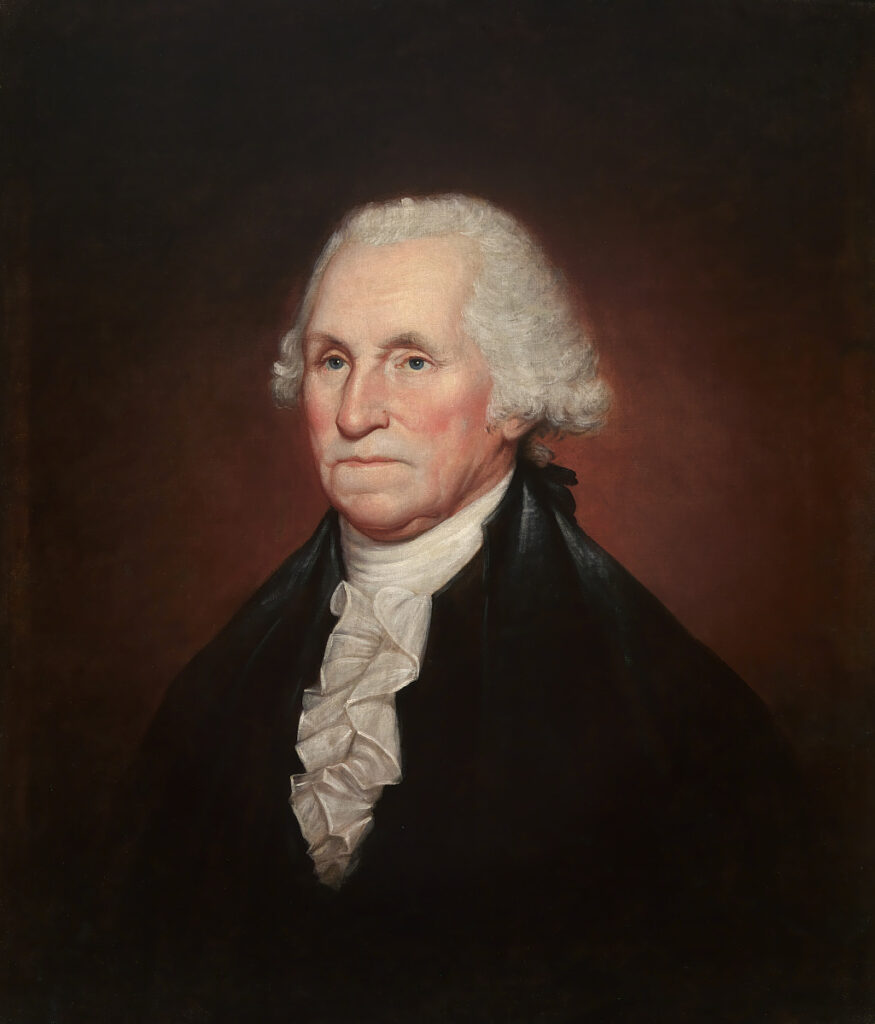Introduction
During the furor over Jefferson’s letter to Philip Mazzei and the partisan rancor it caused, Washington remained publicly silent, even though many Federalists construed the letter as an attack on Washington himself. Prior to the letter’s publication, Washington sent a letter to Jefferson commenting on the display of partisan politics in the country and also offering advice and suggestions on farming techniques. Washington’s correspondence displays his magnanimous nature and his desire to remain above what he considered petty partisan politics. To be sure, however, the Mazzei letter strained the relationship between Jefferson and Washington.
Jefferson had served as secretary of state under Washington but often found himself at odds with Secretary of the Treasury Alexander Hamilton, who seemed to have the president’s ear. In 1793 Jefferson resigned as secretary of state and returned to Virginia where he worked to spread the influence of the new Democratic-Republican Party he had helped to found. He returned to national politics in 1796 as vice president under John Adams, with whom he often had a difficult relationship. The publication of the Mazzei letter did not help things and the Federalist press attacked Jefferson mercilessly. Washington, however, made no public comments about the letter, nor did he ever rebuke Jefferson privately. Jefferson, meanwhile, used the Republican press to fight back over the letter and to prepare for his run at the presidency in 1800.
—Eric C. Sands
Source: George Washington to Thomas Jefferson, July 6, 1796, George Washington Papers, Series 2, Letterbooks 1754–1799, Library of Congress. http://cdn.loc.gov/service/mss/mgw/mgw2/019/019.pdf
Dear Sir,
When I inform you that your letter of the 19th ultimo went to Philadelphia and returned to this place [Mount Vernon], before it was received by me, it will be admitted, I am persuaded, as an apology for my not having acknowledged the receipt of it sooner.
If I had entertained any suspicions before, that the queries which have been published in Bache’s paper proceeded from you, the assurances you have given of the contrary, would have removed them; but the truth is, I harbored none. I am at no loss to conjecture from what source they flowed; through what channel they were conveyed; and for what purpose they, and similar publications, appear. They were known to be in the hands of Mr. Parker in the early part of the last Session of Congress. They were shown about by Mr. Giles during the Session and they made their public exhibition about the close of it.
Perceiving, and probably hearing, that no abuse in the gazettes would induce me to take notice of anonymous publications against me, those who were disposed to do me such friendly offices, have embraced without restraint, every opportunity to weaken the confidence of the People; and by having the whole game in their hands, they have scrupled not to publish things that do not, as well as those which do exist; and to mutilate the latter, so as to make them subserve the purposes which they have in view.
As you have mentioned the subject yourself, it would not be frank, candid or friendly to conceal that your conduct has been represented as derogatory from that opinion I had conceived you entertained of me. That to your particular friends and connections, you have described, and they have denounced me as a person under a dangerous influence; and that if I would listen more to some other opinions, all would be well. My answer invariably has been that I had never discovered anything in the conduct of Mr. Jefferson to raise suspicions in my mind, of his insincerity; that if he would retrace my public conduct while he was in the Administration, abundant proofs would occur to him, that truth and right decisions were the sole objects of my pursuit; that there were as many instances within his own knowledge of my having decided against as in favor of the opinions of the person evidently alluded to; and moreover that I was no believer in the infallibility of the politics or measures of any man living. In short that I was no party man myself, and the first wish of my heart was, if parties did exist, to reconcile them.
To this I may add, and very truly, that until within the last year or two I had no conception that parties would, or even could go the length I have been witness to; nor did I believe, until lately, that it was within the bounds of probability; hardly within those of possibility, that while I was using my utmost exertions to establish a national character of our own; independent, as far as our obligations and justice would permit of every nation of the earth; and wished by steering a steady course to preserve this country from the honors of a desolating war, that I should be accused of being the enemy of one nation, and subject to the influence of another; and to prove it that every act of my administration would be tortured, and the grossest and most insidious misrepresentations of them be made, (by giving one side only of a subject, and that too in such exaggerated and indecent terms, as could scarcely be applied to a Negro; a notorious defaulter; or even to a common pick-pocket). But enough of this. I have already gone farther in the expression of my feelings, than I intended. . . [source document ends with ellipses]




































































































































































































































![Finley, A. (1829) Pennsylvania. Philada. [Map] Retrieved from the Library of Congress, https://www.loc.gov/item/98688548/.](/content/uploads/2024/02/Map-of-PA--273x190.jpg)



































































































































































































